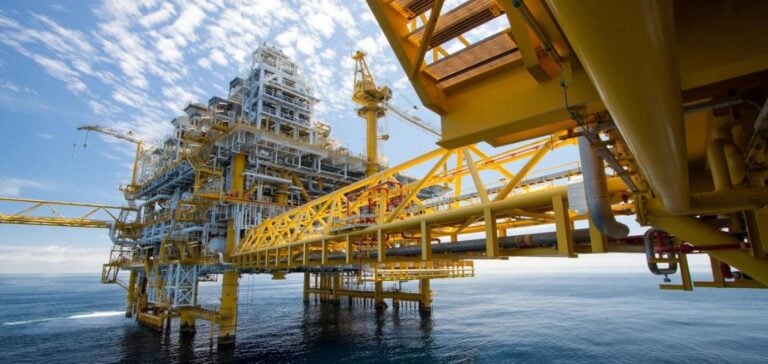Saipem SpA recently won a $4 billion offshore contract with QatarEnergy, a key player in the liquefied natural gas (LNG) sector.
The contract is part of an ambitious expansion project to increase LNG production capacity at the North Field offshore gas field, located off the northeast coast of Qatar.
QatarEnergy currently produces around 77 million tonnes per annum (mtpa) of LNG, but the aim is to reach 142 mtpa by 2030.
This expansion is essential to maintain Qatar’s position as a world leader in LNG.
The contract awarded to Saipem includes engineering, procurement, construction and installation (EPCI) works for the offshore infrastructure required for this expansion.
The infrastructure includes platforms, pipelines and gas processing facilities, which will extract and transport natural gas from the offshore field to onshore liquefaction facilities.
This project represents a major technical and logistical challenge, given the scale of the work involved.
Project details and Saipem’s role
The North Field is the world’s largest non-associated gas field, playing a crucial role in Qatar’s economy.
The expansion of this field not only increases LNG exports, but also strengthens Qatar’s geopolitical position as a major supplier of natural gas.
In a global context where energy security is paramount, this initiative enables Qatar to diversify its export markets, particularly towards Asia and Europe.
Saipem, as the main contractor, is well positioned to bring this project to fruition.
The company has solid experience in managing complex offshore projects, enabling it to meet the technical and operational requirements of this contract.
By winning this project, Saipem has demonstrated its ability to take on large-scale projects, reinforcing its reputation in the sector.
Implications for Saipem and the Energy Market
This contract represents a significant opportunity for Saipem, as it is one of the largest contracts ever awarded to the company.
It is part of a broader strategy to strengthen its presence in the gas sector and to engage in large-scale projects worldwide.
In addition, the success of this project could pave the way for other contracts in the Gulf region, where demand for complex energy projects is growing rapidly.
The financial implications of this contract are also significant.
Saipem could see a significant increase in revenues, which could improve profitability in the medium term.
The size and complexity of the project will probably require an increase in manpower and engineering resources, which could also boost the local economy.
Geopolitical and energy context
QatarEnergy, formerly Qatar Petroleum, has reinforced its strategy of LNG market dominance through this expansion.
By almost doubling its production by 2030, Qatar is seeking to consolidate its position as the supplier of choice, particularly for Asian and European markets.
This strategy is all the more relevant at a time when countries are seeking to diversify their sources of energy supply.
Competition for strategic projects in the Gulf region is intense.
The fact that Saipem has won this contract underlines the increased competitiveness among engineering and construction companies, who are vying for major energy projects.
It also reflects a broader trend in the sector, where companies must constantly innovate and adapt to remain relevant in the face of competition.
Prospects and challenges
Saipem’s participation in major LNG and oil projects in the Gulf region reinforces its position as a key player in the offshore energy sector.
The growing demand for LNG, particularly in Asia and Europe, offers substantial growth opportunities for companies capable of delivering large-scale, complex projects.
However, these projects also entail risks, including delays, cost overruns and logistical challenges.
The geopolitical context can also influence project dynamics, particularly in a region like the Middle East.
Companies have to navigate a complex environment, where international relations and local politics can have a significant impact on project completion.
Proactive management of these challenges will be essential to ensure the success of ongoing initiatives.
The award of this contract to Saipem by QatarEnergy marks a turning point in Qatar’s energy landscape and underlines the strategic importance of North Field.
This expansion project, while offering opportunities for growth, also poses challenges that will require careful attention.
Saipem’s ability to manage these challenges will be decisive for its future in the LNG sector and for Qatar’s energy development.






















